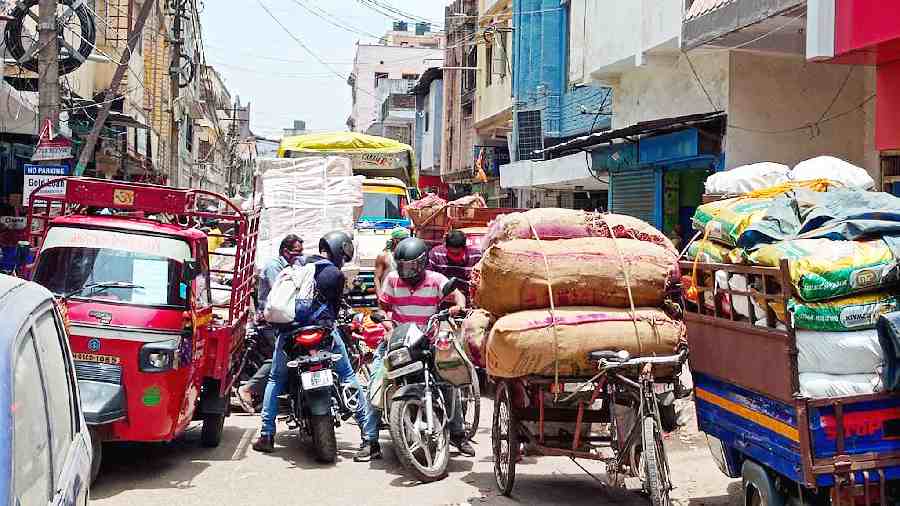Jharkhand could be heading to a food crisis with wholesalers dealing with foodgrains threatening an indefinite strike from February 15 in protest against the Jharkhand State Agriculture Produce and Livestock Marketing Bill 2022 that introduces a market fee on perishable food commodities.
The decision was taken at a meeting of the Federation of Jharkhand Chamber of Commerce and Industries (FJCCI), held on Wednesday evening in Ranchi and attended by delegates from across the state.
The traders went on to claim that it would “encourage price rise and impact farmers adversely”. “We had met senior leaders of the Congress including agriculture minister Badal Patralekh and agriculture secretary Abu Bakr Siddiqui in the past few months expressing our apprehension of price rise and adverse impact on the farmers. But our pleas have fallen on deaf ears. We had even approached the governor (Ramesh Bais). But nothing happened. We have no option but to go on a strike,” said FJCCI president Kishore Mantri.
The FJCCI president informed that all 28 mandis (agriculture market yards) and 150 rice mills will remain closed, and imports of consumable items, primarily agricultural products, will be halted.
“However, we will not pressurise the retailers to join the agitation. There are nearly 1.5 lakh wholesalers across Jharkhand dealing with food items,” Kishor Mantri added.
On February 4, governor Ramesh Bais gave his nod to the Jharkhand State Agriculture Produce and Livestock Marketing Bill, 2022, along with some suggestions. The governor suggested that a thorough discussion with all stakeholders should be ensured during the rule-making process.
“The market fee rate should be fixed with farmers in the state’s rural and tribal communities in mind,” Bais had said.
Former FJCCI chief and executive committee member of Pandra Bazar Samity in Ranchi, Praveen Chabra, said that once the new rule is implemented, a two per cent market fee on non-perishable items and a 1 per cent market fee on perishable items will be realised.
“In this country, 98 per cent of consumable ready items are imported for trading. The burden will fall on consumers with the implementation of market fees.”
Several attempts to contact agriculture minister Badal Patralekh and secretary Abu Bakr Siddiqui on their official number did not evince any answer. Traders under the banner of FJCCI had been protesting against the proposed market fee since April last year.
“If those dealing in foodgrains have to pay a two percent tax for buying those, they have to sell those at a higher price for maintaining a margin which will be very difficult in competitive markets outside the state,” another trader said.
The decision to introduce the fee, under the Jharkhand State Agriculture Produce and Livestock Marketing Bill 2022, received the Assembly nod in March.
“Jharkhand has simply adopted the central government rule. Once the new rule comes into force, a two per cent market fee will be realised on non-perishable items and one per cent on perishable items. Different states have different market fee slabs. The fee is aimed at modernising and improving the infrastructure of agriculture mandis(market yards) in the state,” reasoned a top official of the Jharkhand State AgricultureMarket Board.











